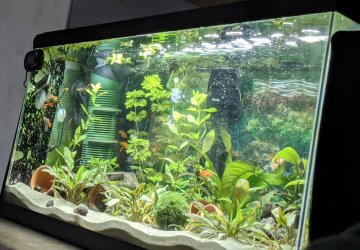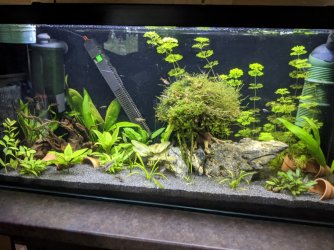AbbeysDad
Fish Gatherer
Although we may instinctively want to care and nurture our children and pets, there's a fair piece of learning involved.
------
And as to care and nurturing, volumes have been written regarding care for animals, which wouldn't exist if 'instinct' was enough. While instinct is more a knee jerk reaction to stimulus, it's learning through study and experience that yields the appropriate knowledge for an excellent care giver and in this case, a good fishkeeper.
------
And as to care and nurturing, volumes have been written regarding care for animals, which wouldn't exist if 'instinct' was enough. While instinct is more a knee jerk reaction to stimulus, it's learning through study and experience that yields the appropriate knowledge for an excellent care giver and in this case, a good fishkeeper.

 I don't know if instinct is the right word because it's experience really. The shown & tested & the knowledge accumulated. That doesn't come naturally - it I'd learned.
I don't know if instinct is the right word because it's experience really. The shown & tested & the knowledge accumulated. That doesn't come naturally - it I'd learned.

